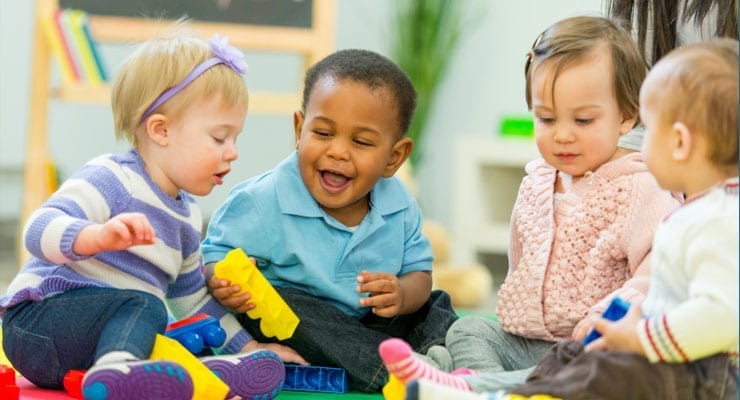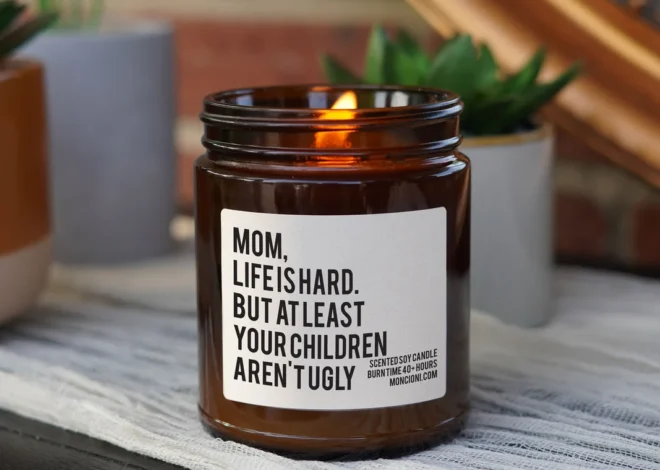The first two weeks after the birth are not only exciting and joyous but very harrowing and demanding.
From two weeks to two months, parents feel increasingly as if they’re getting the hang of it; but there may be a lot of crying and perhaps a bout of colic to contend with. From two months on, having a new baby becomes more and more fun.
By age three months, most babies should be sleeping through the night. They coo and smile a lot, and focus on things and people with glee. Colic has run its course.
So it doesn’t seem fair that three months is considered by many employers to be a generous length for maternity leave. (Paternity leave is so rare, still, that I can only include it by implication.) It can be tough to leave a baby you’ve just started to understand and enjoy.
It may be even harder to return to work earlier than three months. Leaving a baby who seems amazingly vulnerable and fragile in the care of someone else can be very difficult. Yet six to eight weeks is the usual (as opposed to general) maternity leave.
Choosing a daycare situation always takes thought, no matter what the age of the child. However, for mothers who must return soon after the birth, especially those who must return sooner than three months, I very strongly urge that the daycare decision be made before the baby is born.
From contacts with so many parents, I have a sense of how heavily this decision can weigh if it is postponed. Perhaps the problem is that after birth, mothers are so exhausted and in the throes of hormonal tides. Perhaps the demands of caring for the new baby make time seem to pass incredibly swiftly. Perhaps choosing a daycare situation for real, rather than fantasized, baby feels like abandonment.
And perhaps being able to visualize the daycare person and situation even before you yourself hold the baby makes the transition easier. In any event, I strongly suggest making the decision beforehand.
One of your most important questions to candidates is: do you require all the children to be fully immunized? Do you keep a copy of their immunization records? Are you and your family immunized as recommended by the American Board of Pediatrics? An unimmunized daycare child who catches an infectious disease such as whooping cough or measles is a terrible threat to babies who are not old enough to have been fully immunized. And while an older child may handle the disease without problem, those exposed young babies may become seriously ill. Some such diseases can be fatal.
The ideal daycare situation for a very young baby is that which is as close to one baby/one adult as possible. If, as is usually the case, there is more than one baby per adult, the most ideal arrangement is when all the babies are very young, or when the other children are quite a lot older, beyond the toddler and preschool years.
There are several reasons for this:
- The caretaker can have a routine for feeding, diapering, cuddling, soothing that is not interrupted by other highly demanding young children.
- Young children can be both curious about and very jealous of small babies and require constant supervision not to hurt them.
- One of the “jobs” of toddlers and preschoolers is to catch infectious diseases in order to build up lifetime immunity to them. They’re equipped to do this job because their own immune systems are relatively mature. But young babies don’t have mature immune systems, and are very vulnerable to serious consequences of “ordinary childhood diseases.” They are most vulnerable for the first three months of life, though the immune system doesn’t approach real adult levels until about two years of age.
Solutions to the daycare problem I’ve heard from parents include:
- Seeking other parents from prenatal classes who might be interested in watching or two other age-matched babies.
- Banding together with two or three other parents and hiring a mutually satisfactory daycareperson for all the babies.
- Investigating grandparents, not only of their own family, but those of their friends and prenatal classmates.
- Inveigling their prenatal class teacher into starting infant babycare, in which she takes several babies for the first six months.
In making a decision about a daycare person for babies this age, the most important factors are:
- Personal hygiene and health, with no smoking permitted in the household, even when the babies aren’t there, and no pets that could endanger the baby in any way.
- An environment that permits health and hygiene. The are for diapering should be separate from the area devoted to preparing bottles. There should be an area for handwashing, with a soap dispenser and paper towels.
- Warmth and a physically nurturing disposition, along with patience and the ability to tolerate crying. It’s important that she knows that holding a very young baby or picking up the baby as soon as she cries is appropriate and won’t “spoil” him.
- Competence and experience enough to recognize a potentially serious problem and the linguistic ability to be able to get help.
- Ability to accept parental suggestions about safety, schedules, and hygiene.
Excerpted from The Portable Pediatrician by Dr. Laura Nathanson.
Dr. Laura Nathanson is the author of The Portable Pediatrician, as well as several other books. She has practiced pediatrics for more than thirty years, is board certified in pediatrics and peri-neonatology, and has been consistently listed in The Best Doctors in America. For more information please visit http://www.





